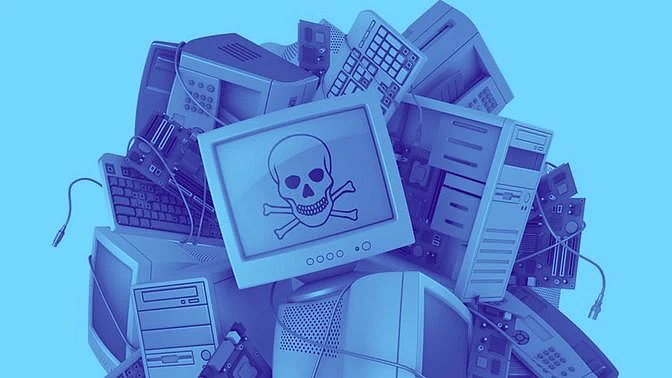The Environment Ministry this week released its Draft E-waste Management Rules which set fresh standards for businesses to adhere to when it comes to recycling electronic waste.
The draft rules, which have been floated for public comments and may come into effect later this year, also introduce a system of tradable certificates similar to the internationally-traded carbon credits.
Electronics manufacuters and any businesses that generate e-waste will have to ensure at least 60 percent of their electronic waste is collected and recycled by 2023. This will increase to 70 percent by 2024 and 80 percent by 2025.
Violators will have to pay a fine called "environment compensation" which would be refunded in part depending on how late the offenders meet their targets.
A wide range of consumer electronics, telecom equipment, medical equipment and electronic tools have been specified in the rules.
Tradable Certificate System
Carbon credits are permits that allow the company that owns them to emit a certain amount of carbon dioxide or other greenhouse gases within a specified time period.
These permits are tradable, and their price depends on demand and supply, incentivising companies to pollute less so that they don't have to buy these to stay under the emissions cap. If companies pollute less than they are permitted to, they can sell their credits to others.
The new draft rules could bring in a similar system to the Indian e-waste landscape. Companies would be required to get Extended Producer Responsibility (EPR) certificates from recyclers and refurbishers.
"A producer can purchase EPR certificates limited to its EPR liability of current year plus any leftover liability of preceding years plus 10 percent of the current year liability," the draft notification says.
"As soon as the producer purchases EPR certificate, it will be automatically adjusted against its liability, Priority in adjustment will be given to earlier liability. The EPR certificate so adjusted will be automatically extinguished and cancelled," it adds.
Companies will have to register on an online portal where they will have to detail their annual production and e-waste collection targets. Recyclers, refurbishers, and bulk consumers also have specific rules listed out for them.
A Steering Committee headed by the Chairman of the Central Pollution Control Board (CPCB) will oversee the implementation and coordinate the trade of EPR certificates.
India is estimated to generate about 2 million tonnes of e-waste each year, coming in fifth among e-waste producing countries, according to the Global E-Waste Monitor 2017. The United States, China, Japan and Germany are the biggest producers of e-waste.
India first introduced e-waste management rules in 2016, which were then amended it in 2018.
